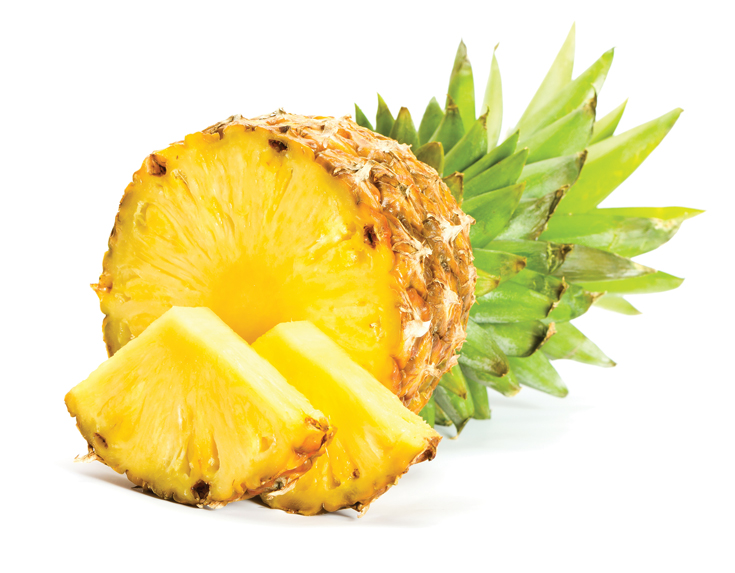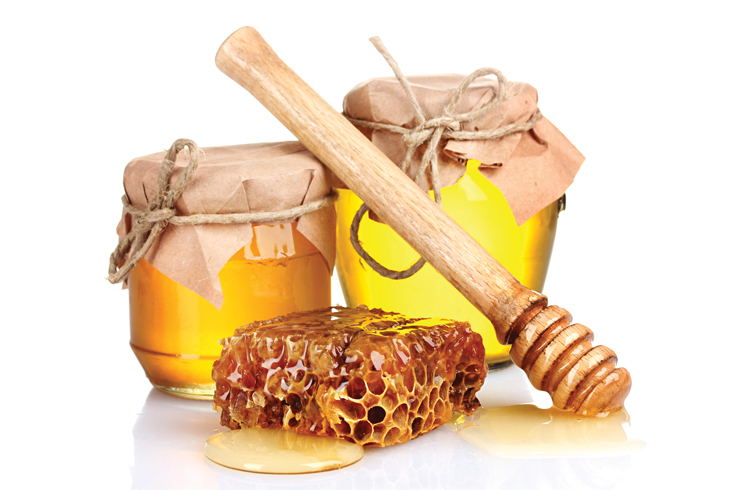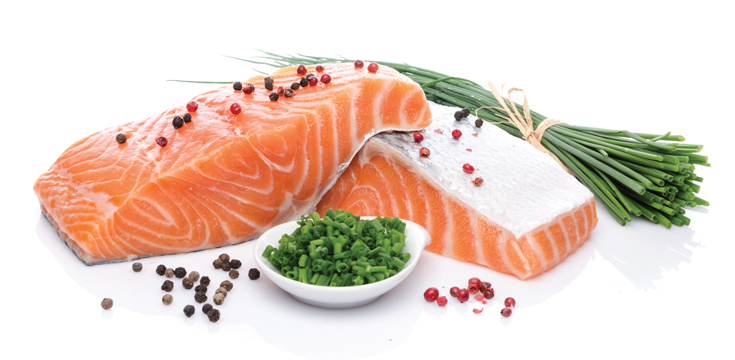“I dream of losing my youth and beauty… I can’t wait to grow old, frail and wrinkly,” said no one ever.
Ahh yes, as much as we learn to embrace ageing and all that it entails (albeit a tad grudgingly), every one of us loves to secretly indulge in far-fetched fantasies of stumbling upon the fabled “fountain of youth”. Wouldn’t it be absolutely glorious if we could just freeze the 25-year-old us – for life.
Well, unfortunately life isn’t exactly a genie that sprouts out of an ancient lamp and goes, “Your wish is my command.” Good news is, though, thanks to Mother Nature there is a host of superfoods out there that can help you hang on to your youthful appearance longer – and promote overall health to boot. Here are our Top 7 Best Anti-Ageing ‘Secrets’ to keep you looking and feeling young and fabulous, with an all-new zest for life!
Blueberries
Whether folded into muffins, cereals or salads, blueberries make for delicious treats. They are practically the “poster child” of superfoods – packed with a type of flavonoid called anthocyanin which lends them its characteristic intense blue hue, along with a string of benefits. It decreases the risk of heart disease, obesity, diabetes, and helps promote hair health, bone strength, mental health – even fight cancer thanks to its powerful antioxidant properties that prevent the effects of free radicals, which in turn could delay ageing.
Blueberries are loaded with Vitamin C, which improves collagen’s ability to smooth wrinkles and enhance the overall texture of the skin. Did you know that one cup of blueberries provides 24% of a person’s recommended daily allowance of Vitamin C? Well, now you do!
Green Tea
Unless you’ve been living under a gigantic rock for the past few decades, you’d have come across some form of news or articles that sing the praises of the all-mighty green tea and its “magical effects”. That’s because the green tea really is the undefeated king of teas, with matcha rising up the popularity scale in leaps and bounds the past few years.
What makes green tea one of the healthiest beverages is its content of natural compounds such as antioxidants and phytochemicals; these decrease inflammations in the body (inflammation is commonly associated with accelerated ageing).
Polyphenols and a catechin (antioxidant) commonly referred to as EGCG (epigallocatechin-3-gallate) work to reduce inflammation, prevent cell damage and help fight off cancer by minimising the formation of free radicals in the body; free radicals play a role in ageing and many types of diseases as well. A cup of green tea daily can potentially help your complexion stay free of wrinkles and fine lines, and keep your skin supple.
Pineapple
The prickly tropical fruit, which has its origins dating back to 15th-century South America, is essentially a precious vault harbouring a wealth of health benefits, from managing diabetes and weight to heart and skin health. Pineapple is loaded with vitamins and minerals (eg Vitamins C, A, B-5, B-6, manganese, potassium, etc), enzymes and antioxidants that help boost the immune system, build strong bones and aid indigestion. Pineapple is also the only natural source of bromelain, an enzyme that helps to cleanse the colon and relieve constipation. Just one cup of pineapple gives you your full daily dose of Vitamin C, a powerful antioxidant necessary to manufacture collagen, a protein which supports skin structure. This is where its anti-ageing powers kick in, with the help of alpha-hydroxy acids that fight skin-damaging free radicals.
Coconut
The humble yet incredibly versatile coconut has been one of the key ingredients in cooking and home remedies in countries like India, Indonesia, Philippines, even Malaysia, since time immemorial. Every aspect of the nut possesses its own sets of benefits, be it coconut water, milk, oil, shell, even the husk. The coconut is packed with highly nutritious fibre, vitamins and minerals that promote heart health, digestion, oral hygiene as well as immunity, and helps manage diabetes.
Coconut is also rich in manganese which promotes bone health, and selenium, an antioxidant that protects your cells. Vitamin E, lauric acid and linoleic acid in coconut oil meanwhile work to hydrate and protect skin and hair; Vitamin E also helps counter ageing and inflammatory effects of UV rays. Plus, coconut oil is also known to encourage the production of collagen, essential in maintaining the skin’s suppleness.
Manuka Honey
The medicinal use of honey goes back thousands of years, all the way to ancient Egyptians, Indians, Chinese, Greeks and Romans who used honey to treat wounds and diseases. And modern science has indeed proven honey’s therapeutic benefits – thanks to its anti-inflammatory, antioxidant and antibacterial properties. And there’s a good reason Manuka honey is often touted as the ‘queen bee’ of honeys (pun unintended).
Native to parts of Australia and New Zealand, Manuka honey is produced by bees that pollinate the flowers on a Manuka bush, a variant of tea tree. Its antibacterial effects come from methylglyoxal (MGO), a result of dihydroxyacetone (DHA) conversion, a compound found in high concentration in Manuka flowers. In fact, the antibacterial effects of Manuka honey are about 100 times higher than regular honey. Studies have shown that Manuka honey can promote tissue regeneration, curb dental plaque build-up and prevent gingivitis, and relieve sore throats and ulcers. Honey aids in anti-ageing by reducing inflammatory cytokine formation, thus helping to reduce signs of ageing such as fine lines and wrinkles.
Broccoli
Love it or hate it, these green cruciferous queens are one of the healthiest foods, playing an important role in reducing the risk of cancer and several chronic diseases – making it a truly anti-ageing powerhouse. Compared to other vegetables in the cruciferous family (eg cauliflower, Brussels sprouts, cabbage, kale, etc), the broccoli has the most concentrated content of Vitamin C, which helps the body produce collagen; collagen is a main protein in the skin which keeps your complexion firm, smooth and bouncy, and prevents fine lines and wrinkles.
Apart from being loaded with vitamins, multiple antioxidants, fibre, folate, lutein and minerals (eg calcium, manganese, copper, zinc, etc), broccoli also contains sulforaphane, a sulfur-rich compound that can boost the natural production of antioxidant enzymes which decrease oxidative stress. The best way to eat broccoli is by steaming it (one to three minutes) to optimise levels of sulforaphane.
Salmon
Does the mere thought of balsamic glazed salmon get your tummy doing cartwheels of joy? How about pan-seared salmon with a generous serving of garlic lemon butter sauce? Well, you’re not alone (and wipe away that drool already). These silver-coloured fish of the Pacific and Atlantic oceans aren’t just delicious, they’re a rich source of Omega-3 known as DHA (docosahexaenoic acid) which are particularly beneficial in protecting the brain, heart and eyes from ageing. Omega-3 helps calm inflammation, which can result in collagen loss and a breakdown in elastin (both of which give skin its youthful appearance). Omega-3 also retains moisture in the skin to help preserve the skin’s elasticity.
Vitamin D in salmon also helps protect the skin against harmful effects of UV rays and free radicals, and promote skin cell growth and repair. And there’s more! Its content of Astaxanthin (a chemical compound known as a keto-carotenoid, which the salmon’s pink hue comes from) creates more collagen and calms inflammation, which helps reduce wrinkles and age spots.



















